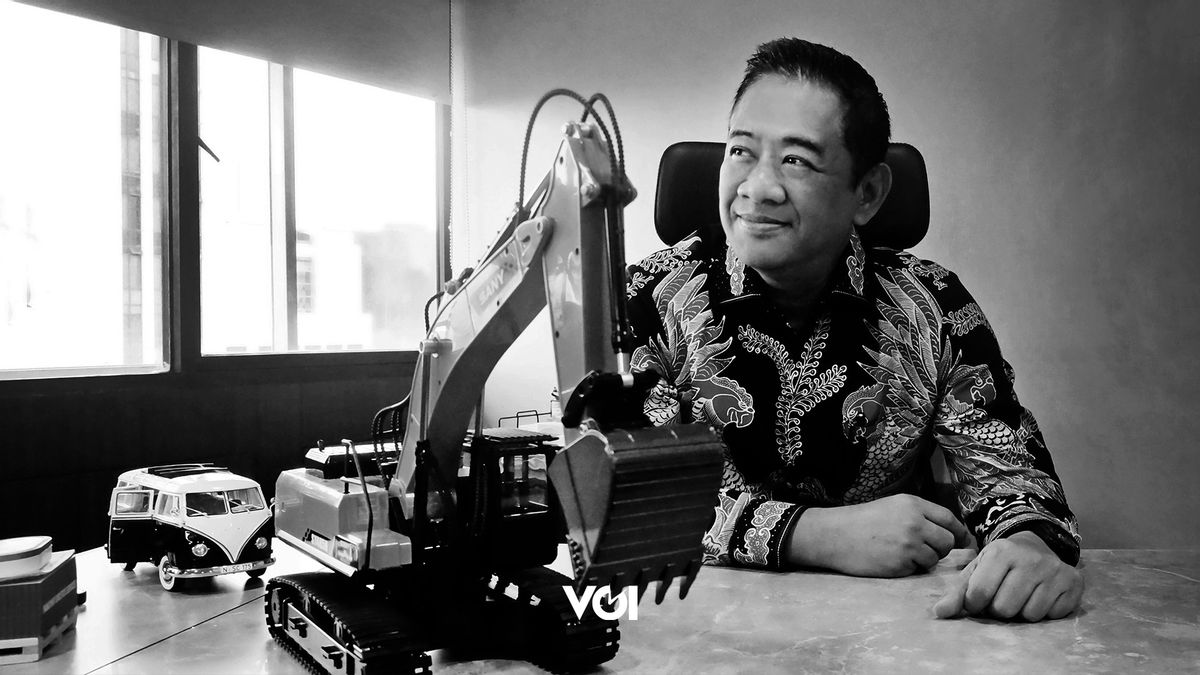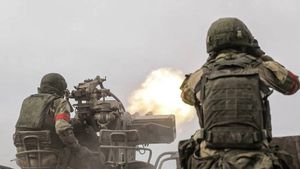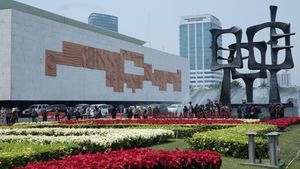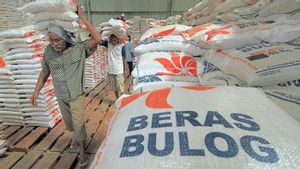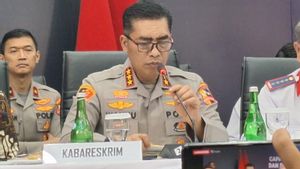Logistics costs in Indonesia are currently the highest in the world. This was conveyed by the General Chairman of the Indonesian Logistics and Forwarders Association (ALFI), Akbar Djohan. According to him, this issue must be a concern for all parties because logistics is the driving force of the economy. To fix the logistics problem, ALFI proposed the establishment of BLN (National Logistics Agency).
***
According to the official website of the Ministry of Transportation, when compared to other countries, logistics costs in Indonesia are indeed the highest. In America and Japan, logistics costs reach 10%, Malaysia 15%, while in China it is even lower, namely 8%. Indonesia has logistics costs of 23%.
"Our logistics costs are the highest in the world. The World Bank states that our logistics costs are 23%, while Bappenas states 14%. On average, developed countries have logistics costs below 10%, China 8%. Affordable logistics costs can attract investors, while high costs will actually make investors stay away because they are not competitive," said Akbar.
The high logistics costs in Indonesia are caused by several factors, including overlapping regulations between ministries and related agencies. In addition, inadequate infrastructure and loading and unloading activities at ports that are still less than optimal are also causes. The government continues to strive to reduce logistics costs by improving regulations and improving infrastructure.
According to Akbar Djohan, ideally logistics costs are affordable in order to increase competitiveness with other countries. "Currently, our logistics are running on autopilot, moving by themselves. This logistics authority is related to 16 ministries and institutions, such as the Ministry of Transportation (transportation), Ministry of Finance (export-import), Directorate General of Taxes (taxation), Ministry of Trade, Ministry of Industry, Ministry of Health, and others. We do not have a parent, everything runs individually. This is why we need a conductor (BLN) who will orchestrate this logistics issue," he said to Edy Suherli, Bambang Eros, and Irfan Meidianto from VOI who met him at the Krakatau Steel Building, in the Gatot Subroto area, Jakarta, recently.

Logistics costs according to ALFI General Chair Akbar Djohan are very vulnerable to government policies and geopolitics. (Photo: Bambang Eros, DI: Raga Granada VOI)
The proposal for the need for BLN has resurfaced, why is this institution needed?
Thank you and high appreciation for understanding the message we sent to the public about our initiative from ALFI to form one agency, namely BLN. The ultimate goal is to give authority to one conductor in regulating the harmonization of regulations in ministries and institutions. The hope is that if there is a conductor, harmonization will be created and there will be no overlapping regulations. That way, we can create logistics efficiency so that logistics costs are affordable, not just cheap, let alone cheap. If so, our logistics sector will have high competitiveness so that the potential increase in HPP from products and services in Indonesia can compete on an equal footing with countries in Southeast Asia and even Asia Pacific.
This logistics is the lifeblood. When the geopolitical situation is not stable, such as the war in Ukraine and Russia and the conflict in the Middle East, the impact is very large on the logistics sector. No one knows when the war will end, and this creates uncertainty in the global supply chain, which will also affect our national supply chain.
When was the idea of forming BLN first put forward?
This is a follow-up to the national logistics system roadmap (Sislognas) which in 2012 was included in the Presidential Regulation. So actually we already have a blueprint for national supply chain governance. There are six keys that can provide certainty in our logistics costs: primary commodities, technology, infrastructure, logistics service providers and actors, human resources, and harmonious regulations. The reason is, the logistics business is very vulnerable to policies. When policies are not pro-business, the impact is high costs. In 2012, the government was aware; at that time there was economic acceleration, and logistics was the driving force.
Our hope is that the existing blueprint will be continued even though adjustments need to be made here and there, in accordance with national and global dynamics. So that we don't need to start from zero, because that would just waste time. The preparation of Sislognas itself took 6-8 years.
If this institution is realized, can it solve the various logistics problems that exist?
Yes, we only need one institution. When the institution is there, we just need to strengthen its function. Logistics is often the "scapegoat" when inflation is high, there is a shortage of basic necessities, there is a shortage of fuel, and on big days such as Eid, Christmas, and New Year. So far, the construction of toll roads has been massive, but during long holidays, toll roads are often closed to transport goods. This clearly has an impact on logistics entrepreneurs.
What needs to be noted is that the presence of BLN is not expected to require an allocation from the APBN. We want equality, because national logistics is the lifeblood and its role is very strategic. President Prabowo's target to achieve 8% growth will be a big homework if the logistics problem is not resolved, especially when linked to the ideals of Indonesia Emas 2045.
Before BLN existed, how did the logistics business in Indonesia work?
There are still many people who do not understand logistics; they think there is already Bulog (Logistics Affairs Agency). What else do they want? In fact, Bulog focuses on PSO (public service obligation) to ensure the smooth supply of basic necessities. So, the people's basic needs are available properly, sufficiently, and on time.
Currently, our logistics are running on autopilot, each running on its own. These logistics matters are related to 16 ministries and institutions, such as the Ministry of Transportation (transportation), Ministry of Finance (export-import), Directorate General of Taxes (taxation), Ministry of Trade, Ministry of Industry, Ministry of Health, and others. We do not have a parent; all run on their own. This is why we need a conductor (BLN) who will orchestrate these logistics matters.

This fact should be a concern for all, said ALFI General Chair Akbar Djohan, logistics costs in Indonesia are the highest in the world. (Photo: Bambang Eros, DI: Raga Granada VOI)
What else is our national logistics problem?
The most fundamental is efficiency which will impact productivity. It is predicted that in the future there will be three developed countries: China, India, and Indonesia. Geopolitics has changed from bipolar to multipolar. Currently, the industrial sector in China is very mature, so they will encourage exports from their country to other countries.
Our country is too easy to grant permission for imported products. In fact, the country should protect domestic producers, namely local industries. The shipping sector in logistics distribution should be enjoyed by logistics business actors. In reality, this sector has not provided benefits for national logistics business actors. In fact, the funds circulating in the national logistics sector reach around IDR 1,700 trillion per year—half of our APBN of IDR 3,500 trillion per year. If managed properly, the economic potential is extraordinary.
To manage it properly, a conductor is needed. Thus, the economic impact can be felt directly by national logistics industry players. This will also increase tax revenues and absorb labor massively.
You mentioned earlier that logistics costs should be affordable. When compared to other countries, what is Indonesia's position?
Our logistics costs are among the highest in the world. The World Bank states that our logistics costs are 23%, while Bappenas states 14%. On average in developed countries, logistics costs are below 10%, such as China which is only 8%. Affordable logistics costs can attract investors, while high costs will be avoided by investors because they are not competitive.
Hopefully, with this BLN, it can reduce our high logistics costs.
Yes, in addition, the logistics funds of IDR 1,700 trillion can be utilized optimally by national logistics players and improve our economy.
Many containers are stuck at Tanjung Priok and Tanjung Perak Ports. Why did this happen and what impact does it have on Indonesia?
There is a 2023 Minister of Trade Regulation that has been changed up to 3 times. This shows the existence of sectoral egos. Disharmony between ministries (Finance, Trade, Industry) causes problems. If there is a conductor, this problem can be resolved in the field without the need for high-ranking officials to go to Tanjung Priok. This causes multiple interpretations. The stranding of around 27,000 containers has caused business uncertainty in Indonesia, increased economic costs, and damaged our reputation. Investors are afraid to come because of uncertain regulations.
How many business actors are there in the logistics sector in Indonesia, and is there protection for local entrepreneurs?
ALFI oversees around 4,000 companies throughout Indonesia, 80% of which are MSMEs. Logistics in Indonesia cannot be separated from world logistics. Some of our logistics entrepreneurs partner with global entrepreneurs. The question is, why is it so easy for global logistics entrepreneurs to enter Indonesia? One of the reasons is their strong capital and the market niche that they can bring to Indonesia.
Why is capital important? Because banks abroad provide competitive interest rates. Meanwhile, Indonesian banks have very strict regulations in providing capital for logistics businesses. How can logistics entrepreneurs move up a class if the conditions are like this? This is what we are fighting for.
The marketplace has grown rapidly in the last decade, has it had an impact on ALFI friends?
Marketplaces and e-commerce offer cheap and fast services. All of this is guided by global players who are invading the Indonesian market. Not many of our members enter this sector, focusing more on cargo by sea, air, land, and train. After arriving at the port, the distribution is continued by our courier friends.
Have ALFI members spread throughout Indonesia?
Our members are spread throughout Indonesia. As long as there are docks and airports, there must be cargo loading and unloading activities. However, the volume we handle is still in the form of bulk cargo.
The development of science and technology makes shipping more sophisticated and efficient. Have ALFI friends used drones?
Drone shipping has been used abroad. However, in Indonesia it cannot be implemented because there are no regulations yet. This is related to security and air traffic. In fact, for a dense city like Jakarta, the use of drones in shipping can be a solution. Congestion makes logistics costs swell.
The heating global situation, such as the war between Russia and Ukraine and tensions in the Middle East, how does it affect our logistics industry?
Heating geopolitics in several parts of the world make the logistics industry high-risk but low-income. Because of the war, shipping routes that were previously shorter are avoided, and safer but longer routes are used. Not to mention the pirate action in the Red Sea off the coast of East Africa. This increases costs. This global situation also affects national logistics.
What are your hopes for the Prabowo government? What can ALFI members contribute to the country, and conversely, what do ALFI friends expect from the government?
With Mr. Prabowo's government, we have new hopes that we observe will be realized by him. Of course, he cannot work alone; all parties must help. Our main hope is legal certainty. Next, we hope for a simpler bureaucracy. So far, managing permits has been complicated and convoluted, this must be corrected.
In addition, there must be synchronization between the center and the regions. We hope that the regional elections that will be held will produce leaders who have a vision and mission that are in line with President Prabowo. Hopefully this can be a concern.
Akbar Djohan's Philosophy of Sharing

In interacting with fellow human beings, both in the office environment and in society, Akbar Djohan has a principle to provide convenience to many people. "Help people as much as possible, don't make things difficult or even oppress people," said the man who serves as the General Chairperson of the Indonesian Logistics and Forwarders Association (ALFI).
This philosophy is simple but has a deep meaning. "When helping people, don't expect them to immediately repay the kindness we have given. Later the universe will move. Just wait," said Akbar, who now holds the position of Commercial Director at PT Krakatau Steel (Persero), Tbk.
For example, when he was still President Director of Krakatau International Port (2021-2023), his company helped Islamic boarding schools around Cilegon. The assistance provided was not in the form of material, but rather entrepreneurial training.
With this provision, it is hoped that students will be created who have entrepreneurial skills and knowledge. After taking the training, students are expected to be independent. "Not only theory, we also bring in practitioners, entrepreneurs who have been tested and successful in their fields. They share tips with students so that they can be successful in the future," explained Akbar.
So, those who are called and provide training are really people who can provide applicable knowledge. "We don't call entrepreneurs like Prayogo Pangestu, Antony Salim, or Chairul Tanjung, for example. That's too far and too high for them. So, we only ask local entrepreneurs who are close to them to share tips and tricks to become entrepreneurs,” he added.
After providing training, the next assistance is to open a marketing network for the products produced, so that what has been made can be absorbed and distributed.
Parent's Message

Akbar Djohan always remembers the message from his parents who were also military personnel and had served as Regent in one of the regencies in South Sulawesi. The message was about unconditional human relations. "My parents always emphasized helping people unconditionally. If you help people, just help them. In other words, be sincere when helping," he said.
Another message that has never been forgotten and continues to be applied today is honesty. "Honest in the sense of being honest, don't pretend or pretend to be honest," he said.
While hanging out with national leaders and successful entrepreneurs, he found a similar message, that they also have a great desire to help the less fortunate. "There are conglomerates who have a very high social spirit. We don't need to force ourselves to help like he does. Yes, just adjust to our abilities and capacities," he continued.
Moreover, said Akbar, if we have a position or title, all of that can be maximized to help others. "Currently, if someone asks for help, I will try as long as it does not cause us any trouble," said the man who completed his BA (International Law) from Hasanuddin University, Makassar, and MA (Human Resources) from Pancasila University, Jakarta.
Attention to Family

No human is perfect. Because of that condition, Akbar Djohan instilled in his children and wife the concept of sincerity. "I built the concept of sincerity to my wife and children. They must know the limitations of their parents' time, with the note that their parents must also be sincere and trustworthy," said the man who maintains a diet and gets enough rest to improve the quality of his health.
Aware of the limitations of time due to being busy at the office and in organizations, Akbar emphasizes quality time in his relationship with his children and wife. "In the past, when the children were still small, I could give time on Saturdays and Sundays for the family. Now I can only do Sundays. So, Sunday is my time completely for my family," he said.
Due to time constraints, his friends also choose to visit on Sundays. "When it's like this, I again ask for the sincerity of my children and wife. I said this time we join Papa's friends on Sunday. The important thing is that everything is communicated," added the man who considers friends as family. So, for Akbar, family is not only the nuclear family, but also friends who are considered as family.
For Akbar Djohan, silaturahmi can make the heart happy, prolong life, and make it easier to get sustenance. "But this is a long-term investment, it can't be instant. If we are happy, it also makes us enthusiastic in working," said the man who does swimming and morning walks to maintain his fitness. Because of his age, he has left heavy sports such as tennis, running, and others.
"What needs to be noted with the presence of this BLN is that we do not expect an allocation from the APBN. We want equality, and national logistics is the lifeblood and its role is very strategic. President Prabowo's target for 8% growth will feel like a big homework if the logistics issue is not resolved. Especially if it is connected to the ideals of Indonesia Emas 2045,"
The English, Chinese, Japanese, Arabic, and French versions are automatically generated by the AI. So there may still be inaccuracies in translating, please always see Indonesian as our main language. (system supported by DigitalSiber.id)
